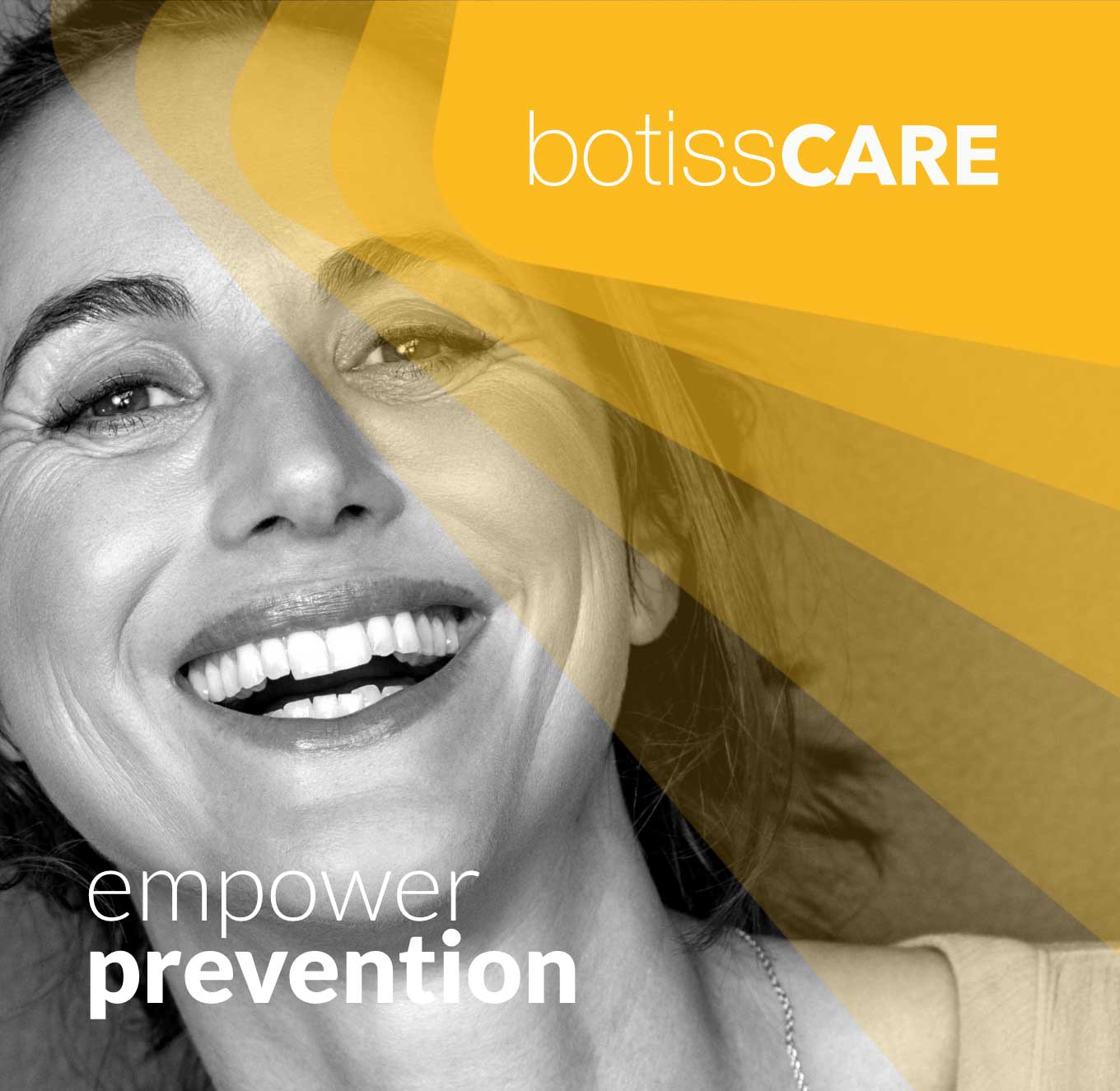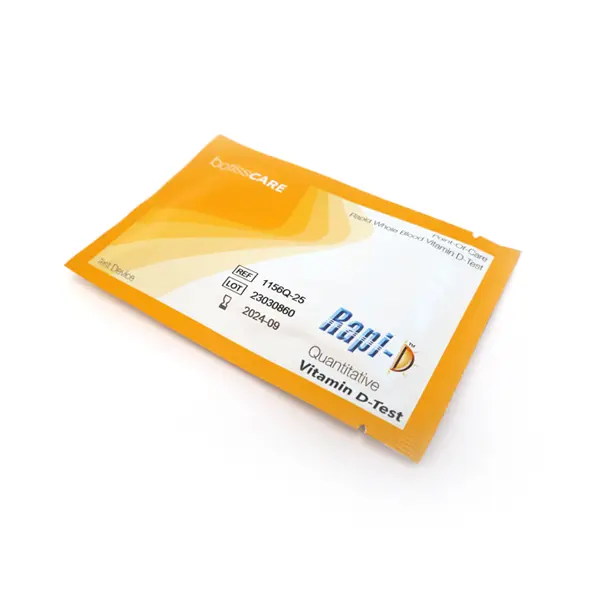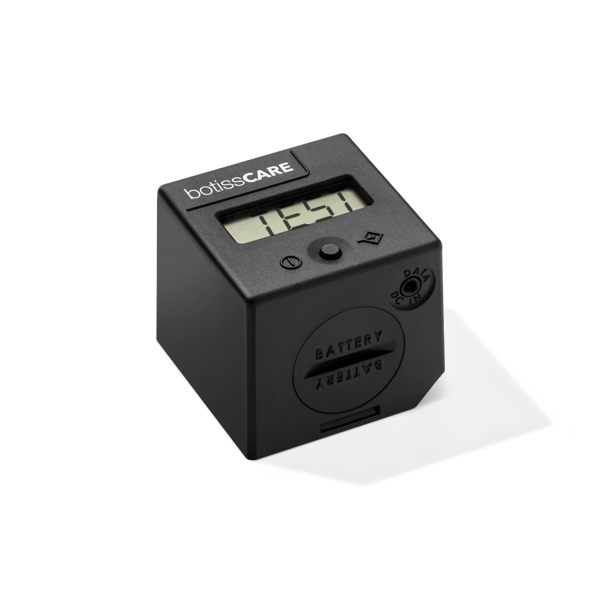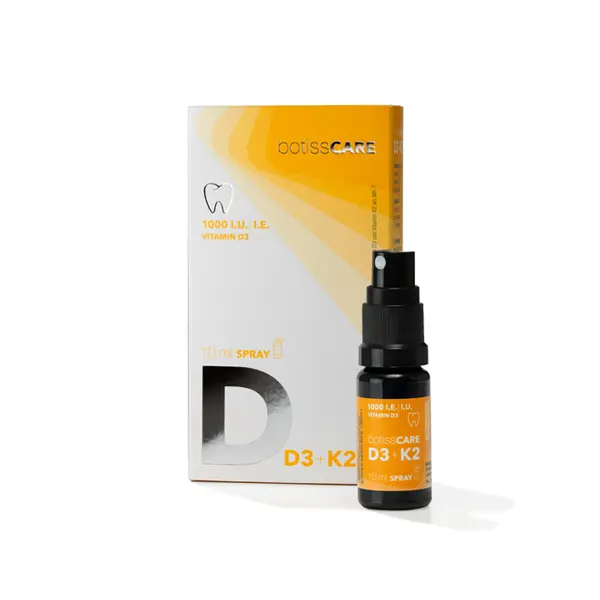A high vitamin D level for
dental treatment success
In medicine, there is clear evidence for the importance of vitamin D in clinical treatment.
Scientific studies have shown that having a sufficient vitamin D level has a significant influence on the success of dental treatments; from prophylaxis to caries and implantology.
botissCARE – dental prevention re-thought
VITAMIN D AS A SUCCESS FACTOR
It is essential for your treatment success to know the vitamin D status of your patients. Assess your patients in your practice using an immediate chairside test from botissCARE. Plan your therapy tailored to the individual needs of your patients.
This creates a basis for evidence-based improvement in their treatment outcomes and success rates, in which the patient also participates.


EVIDENCE SCIENTIFICALLY PROVEN
A high vitamin D level has a significant impact on improving dental treatment success.
With botissCARE solutions, you integrate a toolbox for testing, quantitative analysis, and optimization of your patients’ vitamin D3+K2 balance into your treatment workflow – immediately and chairside in your practice.
We support you in the smooth integration of vitamin D into your practice routine and additionally provide you with tools for proper patient communication.
For further questions and answers, read our FAQs here
WHAT RESEARCH SAYS
PRODUCT ORDER
Do you have your practice in Germany? Then order directly here:
You will be redirected to our sales partner Straumann.
If your practice is located in Austria, please contact our product management. If your practice is located outside of Germany and Austria, we will be happy to inform you when other countries are added. To stay up to date, please register here for our newsletter.
botissCARE stands for innovation and scientific expertise in bone and soft tissue regeneration.
The perfect partner for dentists who strive for the best results for their patients.
You are currently viewing a placeholder content from Vimeo. To access the actual content, click the button below. Please note that doing so will share data with third-party providers.
More InformationADDED VALUE TO YOUR SERVICES
All-in-One
botissCARE offers you coordinated solutions for immediate, quantitative determination and optimization of vitamin D levels. You receive all components first-hand from your reliable partner with scientific expertise.
15 MinuteS
The reliable result of our minimally invasive chairside test is available to you after only 15 minutes. This provides you with a reliable basis for decision-making for further consultation with your patient.
SAFETY
By regularly checking and adjusting the vitamin D level of your patients, you reduce the risk of complications such as unpredictable implant loss and thus increase planning reliability and patient satisfaction.
USER OPINIONS

“We are not just mechanics, we are doctors of the oral cavity. And as such, if we’re going to do complex surgery, let’s measure vitamin D, let’s supplement, and let’s just add that extra measure to our patients, allowing us to not just be dentists, but also healers.”
Dr. Miguel Stanley

“In my practice, the botissCARE system represents a valuable new building block in my implantology and periodontology treatment concepts. Through the simple chair side application, my patients can very quickly get an insight into their current vitamin D level. Individual, rapid decision-making on the necessary preventive care becomes possible.”
Dr. Jochen Tunkel

“For me, the botissCARE offer fills a gap I have been aware of for some time between professional dentistry and the holistic patient care that is just as necessary for this.”
Fabian Hirsch
You are currently viewing a placeholder content from Vimeo. To access the actual content, click the button below. Please note that doing so will share data with third-party providers.
More InformationTHE BOTISSSTANDARD
As a manufacturer of medical devices, we apply strict quality criteria. Each of our products as well as the selection of components and partners are subject to the highest legal standards. In studies and in exchange with international experts, our scientists verify the effectiveness of our solutions and pass on their experience to our customers for optimal application.
botiss biomaterials – on the safe side based on experience






















